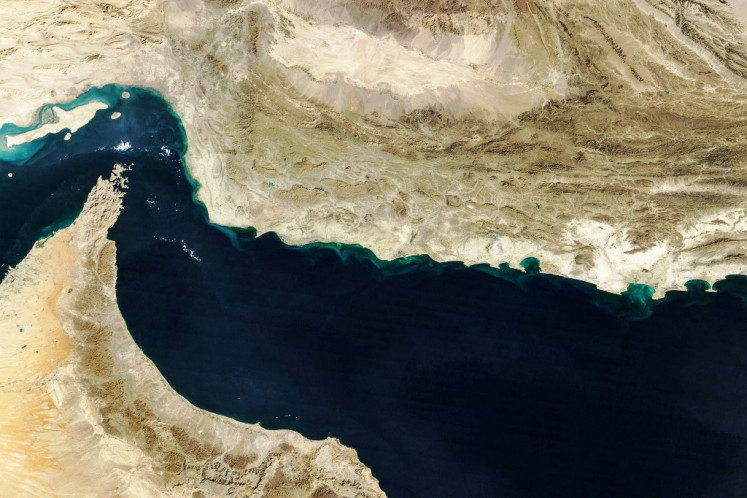Popular Reads
Top Results
Can't find what you're looking for?
View all search resultsPopular Reads
Top Results
Can't find what you're looking for?
View all search resultsThe urgent need for Earth-centered legal systems
We face both the devastating impacts of ecological degradation and the opportunity to pioneer new legal paths for ecological justice.
Change text size
Gift Premium Articles
to Anyone
W
e have entered a new epoch, the Anthropocene, where human activities profoundly shape Earth's delicate systems. Unlike past geological eras, this one is defined by our unprecedented impact. Our atmosphere is warming, oceans are acidifying and biodiversity is rapidly declining.
Despite this critical knowledge, our legal frameworks remain largely outdated. They separate humans from nature, prioritize short-term economic gain over long-term planetary stability and fail to recognize the environment's intrinsic value. This is where "Law in the Anthropocene" becomes essential. It calls for an urgent re-examination of legal principles, shifting from a human-centered to an Earth-centered perspective.
Traditionally, laws served human interests, treating nature as property or a resource. The Anthropocene exposes the limits of this thinking. Law in the Anthropocene recognizes our embedded nature within ecological systems, our survival depends on their health. It demands legal systems move beyond "sustainable development" toward strong sustainability, where critical ecological thresholds cannot be sacrificed for short-term economic gain.
ASEAN, with its unique biodiversity, is at the forefront of this transformation. We face both the devastating impacts of ecological degradation and the opportunity to pioneer new legal paths for ecological justice. The climate crisis is not a future threat, it is here now.
In 2024, global temperatures hit 1.55 degrees Celsius above pre-industrial levels, making it the hottest year on record. Events like Super Typhoon Yagi and Cyclone Chido demonstrate the climate system's growing instability, symptoms of a planet pushed beyond its safe operating temperature.
This reality forces us to ask: Is our current legal system equipped? The answer is no, not yet. Environmental law, as it stands, is not designed to enforce the ecological thresholds needed to maintain Earth's balance. It is built for limitless growth, not for a world facing planetary boundaries. Therefore, environmental law must evolve, reimagined to establish clear, enforceable limits on human activities, grounded in planetary boundary science. This is the essence of Law in the Anthropocene.
I have identified four critical gaps explaining why current legal and governance responses to the ecological crisis have been ineffective.



















